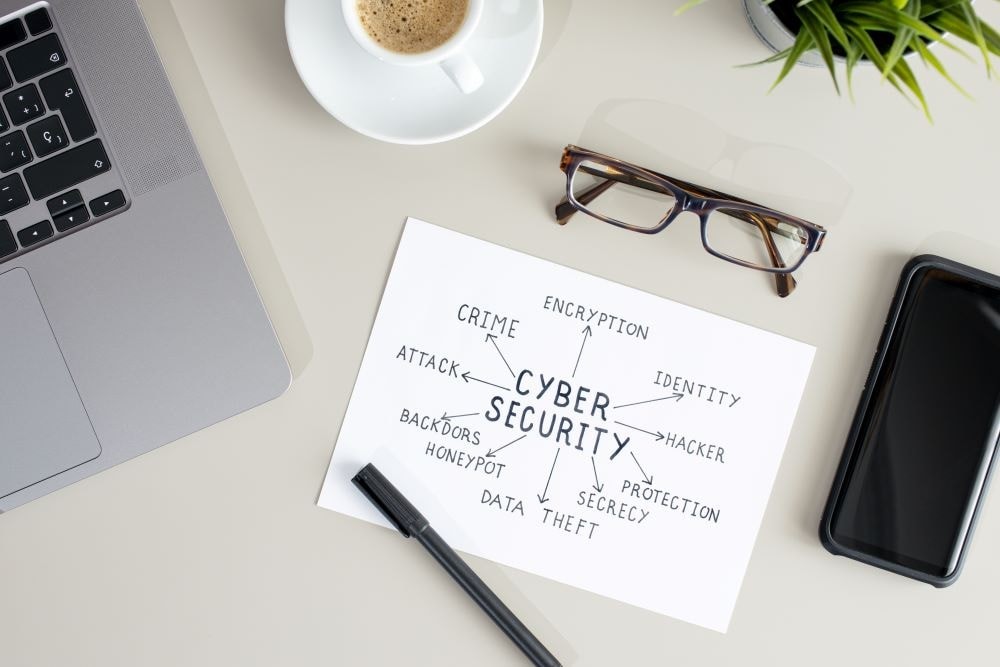In today’s digital landscape, cybersecurity is more critical than ever, and so is your website’s visibility. As online threats increase, integrating cyber security into your robust SEO strategy is essential not only for keeping your site safe but also for improving its search engine ranking.
This article will dive into the top seven cyber security SEO practices, helping you protect your website and rank higher on search engine results pages (SERPs).
What Is SEO for Cybersecurity?
SEO for cybersecurity involves optimizing a website to rank higher in search results while ensuring the website is secure from cyber threats like phishing, malware, and hacking attempts.
A secure website builds trust with search engines, ultimately leading to better visibility and ranking on search engine results pages (SERPs). By integrating robust security measures into your SEO strategy, you can achieve a safe online presence that attracts organic traffic and maintains user trust.
Why Is SEO Crucial for Cybersecurity Companies?
The cybersecurity industry faces unique challenges. With data breaches, malware, and hacking incidents on the rise, companies providing cybersecurity solutions must ensure their websites are both visible and secure.
Cybersecurity companies rely on trust and credibility to attract clients, making SEO even more vital for their business.
Here are a few reasons why SEO is crucial for cybersecurity companies:
- Builds Trust and Credibility: High search rankings often convey trustworthiness to users. Ranking on the first page of Google indicates that your company is reputable and reliable.
- Increases Organic Traffic: SEO helps potential customers find your website when searching for cybersecurity solutions. This boosts your website traffic and leads to more conversions.
- Educates Potential Clients: With quality content optimized for SEO, you can educate visitors about cybersecurity threats and how your services mitigate those risks.
- Competitive Edge: With strong SEO practices, you can outrank competitors, positioning your company as an industry leader.
7 Essential Cyber Security SEO Strategies
Here are the top cybersecurity SEO strategies to improve your search engine rankings and protect your website:
1. Conduct Thorough Keyword Research for Cybersecurity Topics
Keyword research is crucial for attracting the right audience to your website. Focus on identifying keywords that are relevant to cybersecurity and align with user intent. Some examples include:
- “Network security best practices”
- “Cyber threats prevention”
- “Ransomware protection tips”
- “Secure website guidelines”
- “Cybersecurity SEO strategies”
Google search is a valuable resource for brainstorming additional keywords. Utilizing Google autocomplete can help you discover phrases that people commonly search for alongside your target keyword.
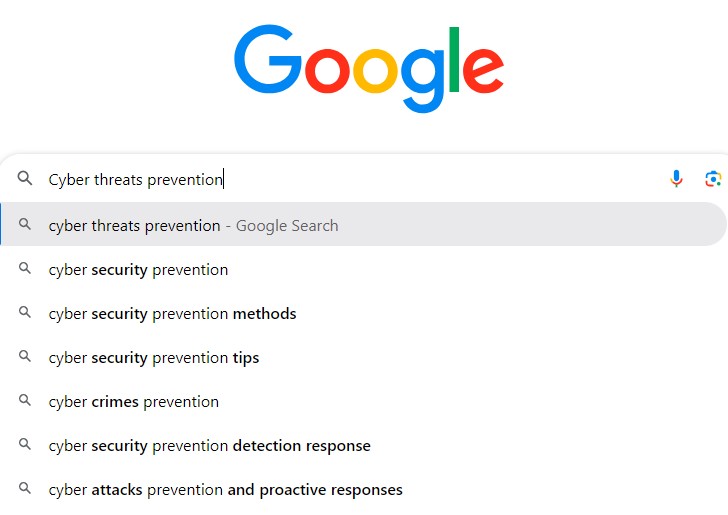
Next, review the “People Also Ask” section to discover additional questions that users commonly search for related to the keyword:
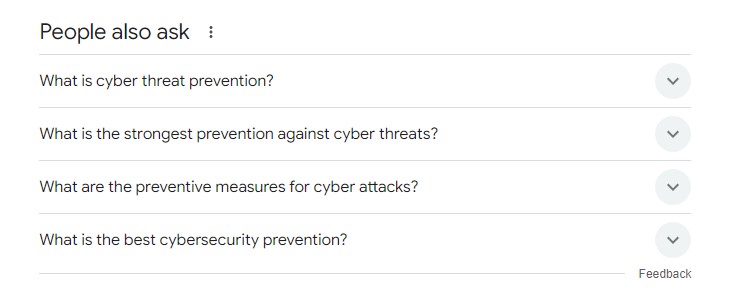
Tools like Google Keyword Planner, Semrush, and Ahrefs can help you identify high-volume, low-competition keywords. Use these tools to find specific keywords that your target audience is searching for, and incorporate them into your content, meta descriptions, and headings to improve search visibility.
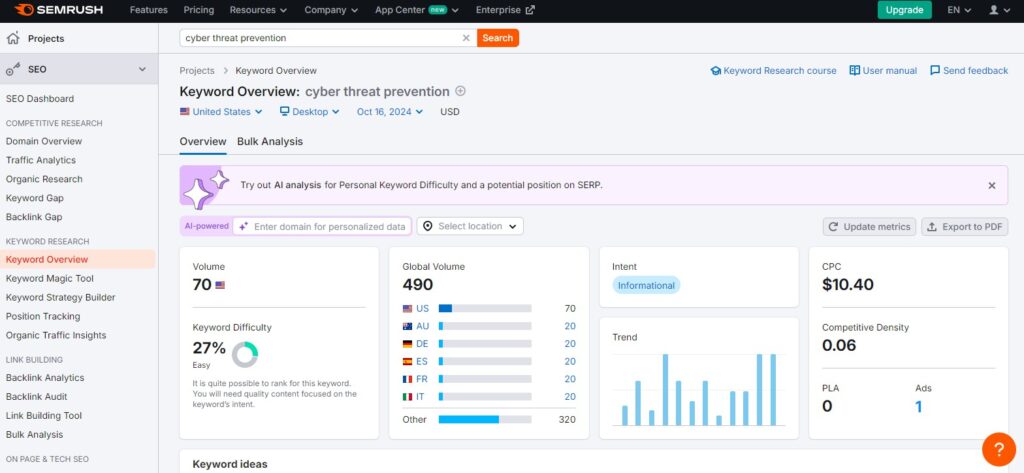
2. Optimize Your Website for HTTPS
Using HTTPS instead of HTTP is a basic yet critical step in securing your website. HTTPS encrypts data between the user’s browser and the server, preventing data interception by malicious actors. Google has made it clear that HTTPS is a ranking factor, which means that secure websites have an advantage in search engine rankings.
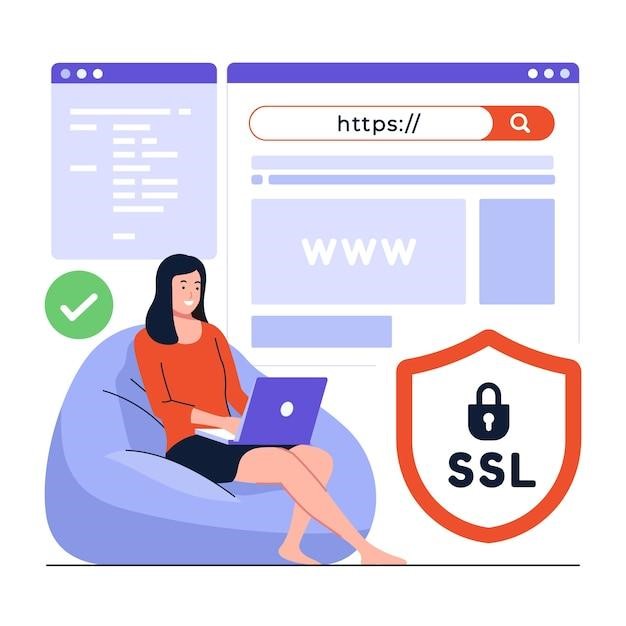
If your website is still running on HTTP, it’s time to switch to HTTPS by obtaining an SSL certificate. This not only improves your website’s security but also signals to search engines that your website can be trusted, potentially boosting your rankings on SERPs.
3. Enhance Your Technical SEO with Regular Site Audits
Technical SEO plays a vital role in ensuring that search engines can crawl and index your website effectively. Regular site audits help identify security vulnerabilities and technical issues that could impact your search engine performance.
Google PageSpeed Insights can help you evaluate Core Web Vitals by analyzing how your pages perform in real-world conditions. It identifies areas that meet performance benchmarks and those that require optimization.
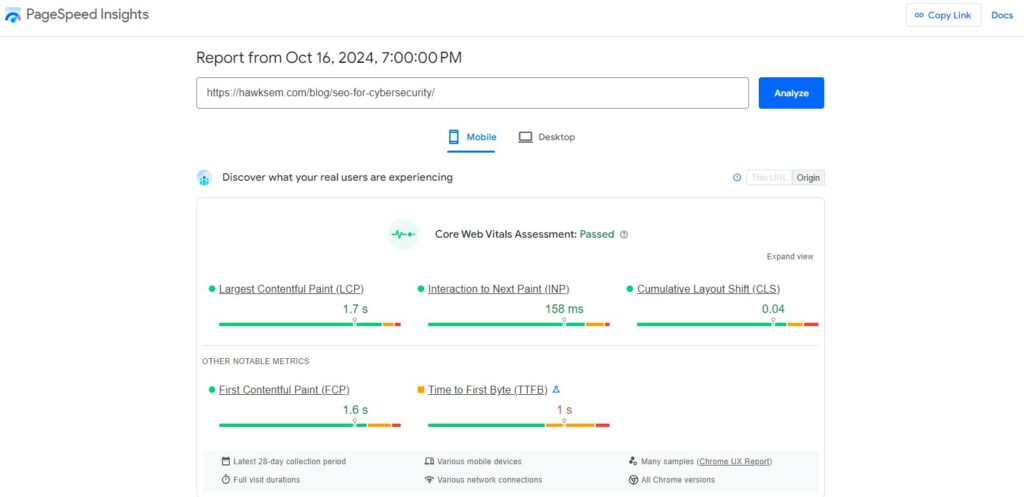
Key aspects of technical SEO for cybersecurity include:
- Fixing broken links and 404 errors that can be exploited by cybercriminals.
- Ensuring your website has a clean and optimized robots.txt file.
- Monitoring crawl errors in Google Search Console.
- Regularly updating plugins, themes, and software to patch security vulnerabilities.
Performing these checks and updates can improve your website’s security and search engine rankings, making it easier for search engines to navigate your site.
4. Focus on Creating Valuable, Informative Content
Content is king in SEO, but it’s even more powerful when it addresses relevant cybersecurity topics. Producing content that answers users’ questions and addresses their concerns about cybersecurity can establish your site as a valuable resource in the cybersecurity industry.
Consider creating blog posts and guides on topics like:
- “How to protect your website from phishing attacks”
- “Best cybersecurity practices for small businesses”
- “Understanding the importance of two-factor authentication”
The top organic search result for “How to protect your website from phishing attacks” is a blog post from ”occ.gov”:
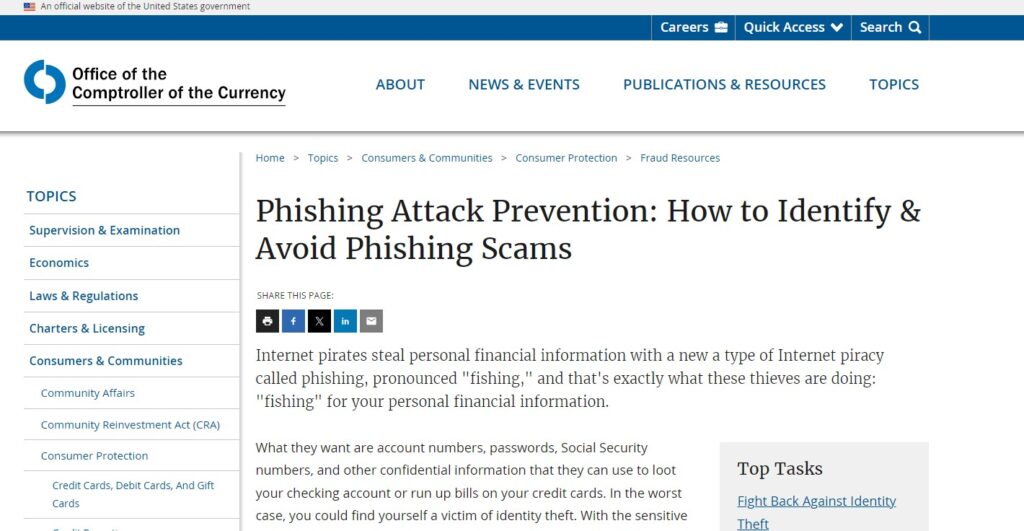
By providing high-quality, informative content, you can attract more backlinks from reputable cybersecurity websites, improving your site’s authority and search engine rankings.
5. Implement Secure Link Building Strategies
Link building remains a cornerstone of SEO, but it’s essential to focus on acquiring links from reputable websites to avoid SEO spam and maintain a secure website. A few strategies include:
- Guest Blogging: Write guest posts for reputable cybersecurity organizations and include a link back to your website.
- Create Linkable Assets: Publish high-quality resources like infographics, eBooks, or research reports related to cybersecurity that other websites would want to link to.
- Avoid Private Link Networks (PLNs): These can be risky and may lead to penalties from search engines.
Focus on backlinks from high-authority pages and websites. Semrush helps evaluate these with its Page Authority and Authority Score metrics.
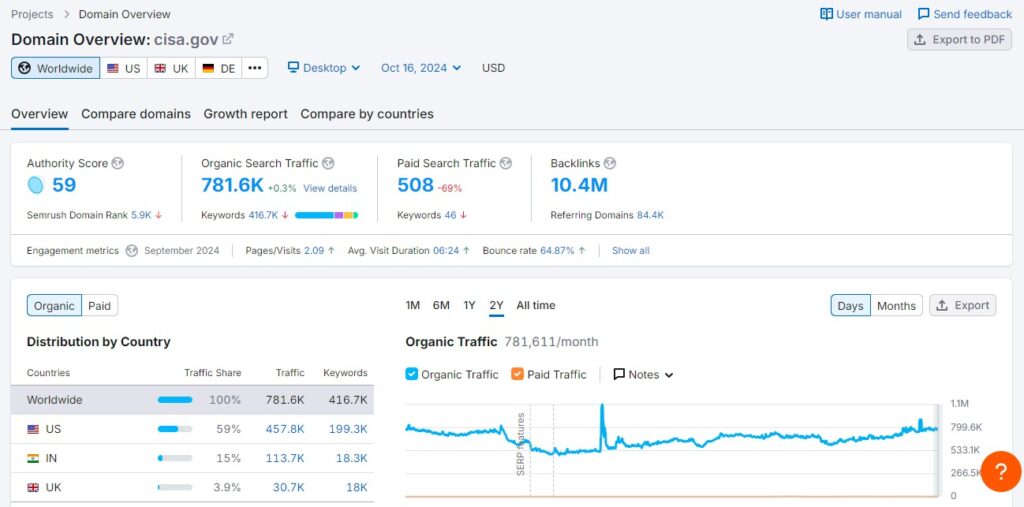
Focusing on ethical and secure link-building practices will not only help in improving your website’s authority but also protect it from potential penalties.
6. Optimize Meta Tags and Descriptions with Security Focused Keywords
Meta tags and descriptions play an important role in how search engines interpret the content of your web pages.
Including relevant keywords like “cybersecurity services,” “secure website,” and “network security” in your meta tags can help you rank for these terms. However, it’s crucial to avoid keyword stuffing, which can result in penalties.
Here’s an example of Meta Tag and Description;

Ensure your meta descriptions are concise, informative, and include a call-to-action (CTA) that encourages users to click through. For example:
“Learn how to protect your website from cyber threats with our expert cybersecurity SEO strategies. Discover best practices to enhance security and improve your search rankings.”
7. Monitor Website Traffic and User Behavior with Google Analytics
Using tools like Google Analytics and Google Search Console helps you track the performance of your SEO efforts and detect potential security issues.
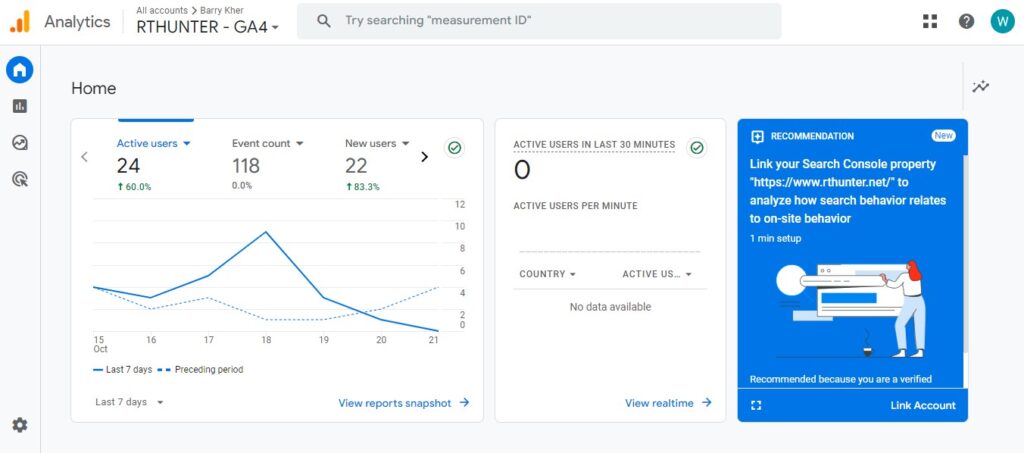
Regularly monitoring your website’s traffic patterns can help you identify suspicious activity, such as sudden traffic drops or spikes, which could indicate a security breach.
Google Analytics can also provide insights into which pages are performing well and which ones need optimization. This data is valuable for adjusting your SEO strategy and ensuring that you maintain a secure, user-friendly website.
How Much Does Cybersecurity SEO Cost?
The cost of implementing cybersecurity SEO strategies varies based on the size and complexity of your website. If you have an in-house SEO team, you may only need to invest in tools and plugins that offer website security features. Outsourcing SEO to a professional agency, like SEO Strategies Pro, can range anywhere from $500 to $5,000 per month, depending on the scope of work.
Investing in SEO is a long-term strategy, and the benefits far outweigh the costs, especially in an industry where trust and online presence are paramount.
How Does SEO Benefit Cybersecurity Companies?
Cybersecurity companies face stiff competition in the online world. By adopting these local SEO strategies, you can expect to see:
- Higher Search Rankings: As you improve your website’s security and performance, search engines will reward you with better rankings.
- More Organic Traffic: Better rankings mean more visibility, which leads to increased traffic and potential leads.
- Stronger Brand Reputation: A secure, well-optimized website fosters trust and credibility, vital for cybersecurity businesses.
How SEO Strategies Pro Can Help You with Cybersecurity SEO
At SEO Strategies Pro, we understand that the cybersecurity industry requires a tailored SEO approach. Our team of experts specializes in cybersecurity SEO strategies that enhance your website’s online visibility while keeping it secure from cyber threats. We help cybersecurity businesses implement:
- Technical SEO efforts to secure their site’s infrastructure.
- Comprehensive keyword research targeting specific cybersecurity solutions.
- Ethical link-building strategies to increase your site’s authority.
- Ongoing site audits and security enhancements to protect your online presence.
We can also help your cybersecurity firm leverage tools like Google Analytics and Google Search Console to monitor SEO progress, assess risks, and improve your site’s performance.

Ready to Secure Your Website and Boost Your SEO?
Enhancing your website’s security isn’t just about protecting your data; it’s also about improving your online visibility. By following these seven cybersecurity SEO best practices, you can keep your site secure while boosting your search engine rankings. Whether you’re a website owner or a cybersecurity professional, implementing these strategies will help safeguard your online presence and attract more visitors.
At SEO Strategies Pro, we specialize in providing tailored SEO solutions for cybersecurity companies. Contact us today for a comprehensive audit and let us help you rank higher while staying secure online!
FAQs
What is SEO poisoning in cybersecurity?
SEO poisoning is a cyberattack technique where malicious websites are optimized to rank highly in search engine results to lure users into clicking them, leading to malware or phishing attacks.
What is SEO in networking?
In networking, SEO (Search Engine Optimization) isn’t directly applicable. However, SEO-related activities can involve optimizing content on websites hosted via a network to improve search rankings.
What is SEO in web technology?
SEO in web technology refers to the practice of optimizing websites for better visibility and ranking on search engines through techniques like keyword optimization, site structure improvements, and enhancing user experience.
What are the four areas of SEO?
The four key areas of SEO are On-page SEO, Off-page SEO, Technical SEO, and Content SEO.

